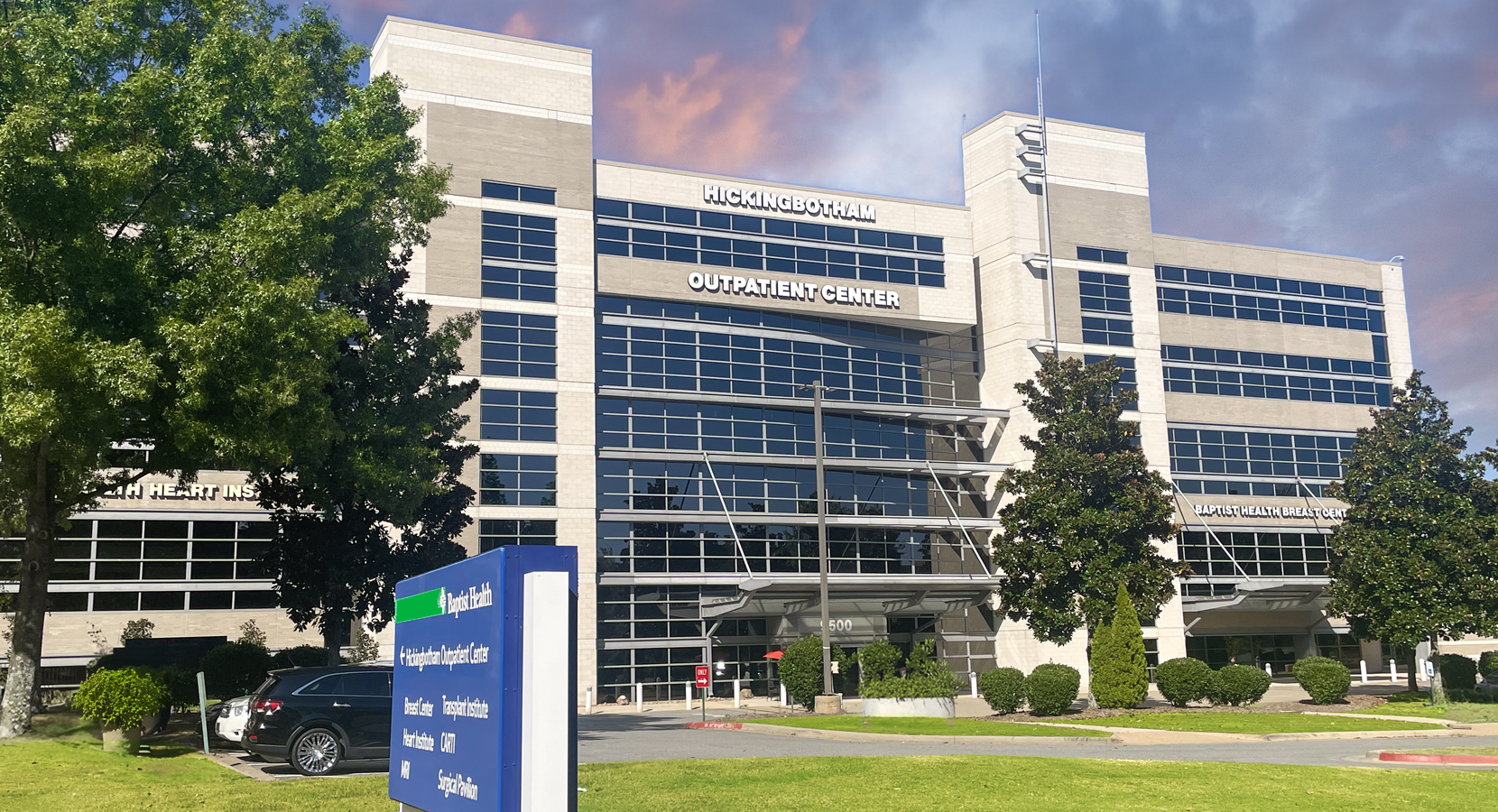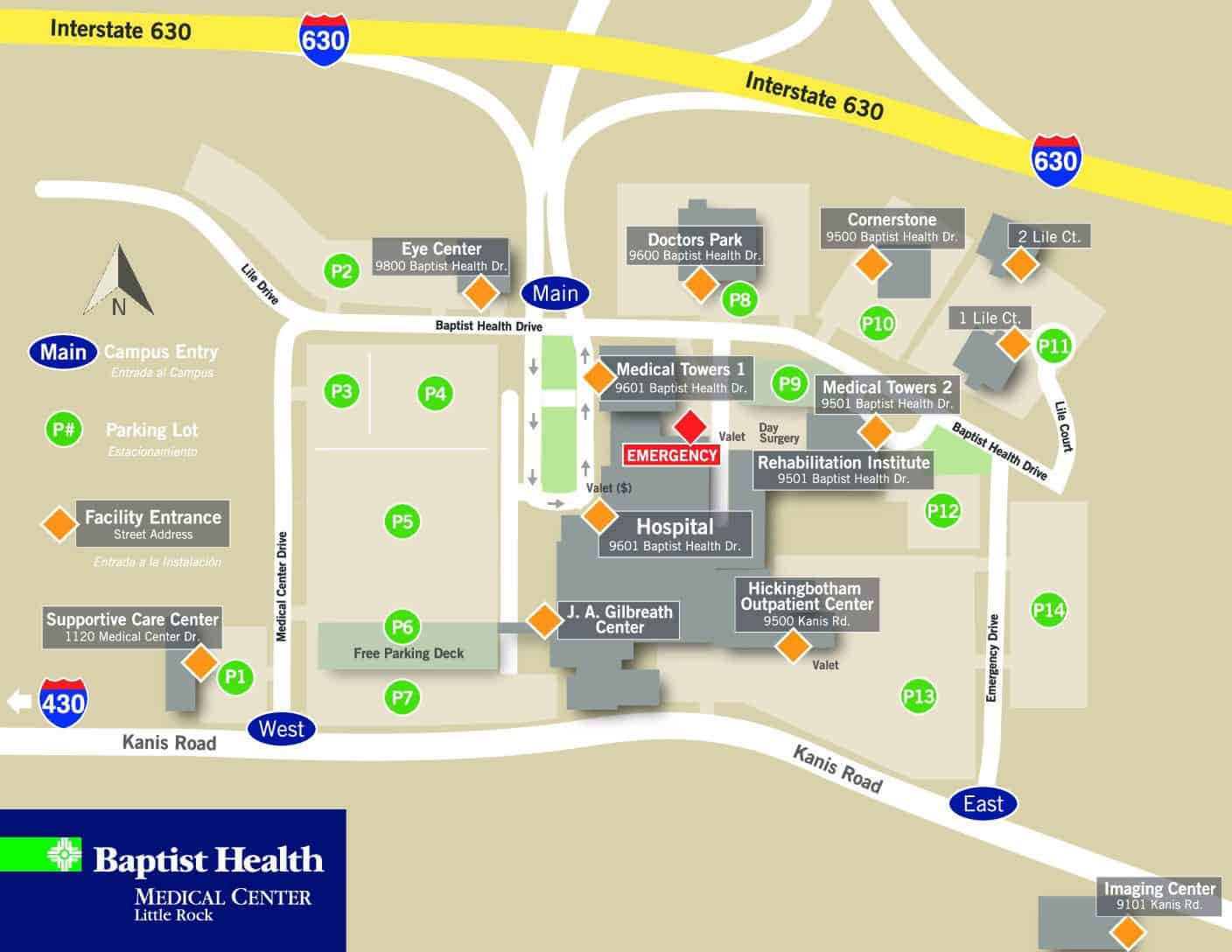About Baptist Health Heart Failure and Transplant Institute
The Baptist Health Heart Failure and Transplant Institute offers a seamless care path for advanced heart failure patients who eventually require advanced heart failure therapies – from management to ventricular assist device to transplantation.
No other hospital in the state can offer this level of care.
The Institute is one of the most comprehensive heart transplant centers in the country. The first heart transplant was completed at Baptist Health Medical Center-Little Rock in November 1989, and since that time, more than 289 heart transplants have been performed. Baptist Health was also the first to implant a left ventricular device (LVAD) in Arkansas and have implanted more than 400 of these life-extending devices.
Whether or not you need these advanced surgical therapies, as a patient in our Heart Failure Program, you have access to the most comprehensive set of heart failure management protocols available in the state. In fact, three of the five heart failure specialists in Arkansas are at Baptist Health.
We also actively participate in heart failure clinical trials, advancing our collective knowledge about beneficial therapies.
The Baptist Health Heart Failure and Transplant Institute has been recognized for expertise in delivering specialty care by Blue Cross Blue Shield as a Blue Distinction Center for adult heart transplants.
How do you get started with the Baptist Health Heart Failure and Transplant Institute?
To learn more or to make an appointment with one of our heart failure specialists, ask your primary care physician or cardiologist to refer you to one of our specialists. Or, you may call us directly.
We will help you through the process of determining the next step towards managing your heart failure, providing hope all along the way.
Will you qualify for an advanced surgical procedure?
Once it has been determined that medications and lifestyle changes alone are not providing you with an adequate quality of life, it’s time to review surgical therapies.
After comprehensive tests, a heart failure specialist will tell you if you qualify as a candidate for a heart transplant or possibly an LVAD (left ventricular assist device). You and your family will be guided through the difficult decision-making process. Of course, as the patient, you are the ultimate decision-maker. Some patients won’t qualify for or want advanced therapies. We work closely with them, helping them manage their heart failure for the rest of their lives.
Considerations for both heart transplants and LVADs:
If your heart failure has become quite severe and diagnostic tests like a right heart catheterization demonstrate that you are very ill, you are probably on a continuous IV drug to help your heart contract well enough to pump a blood supply that is barely adequate. At this point, you will be seriously evaluated as a transplant or LVAD candidate.
- There are several conditions that may prevent you from having a heart transplant or LVAD implant:
- Any active cancer in the past five years
- Severe Type 1 (primary) pulmonary hypertension
- Bad lung function from severe COPD or restrictive lung disease
- Patients with a history of GI bleeding will need to be carefully evaluated
- Severe arterial disease including calcifications and plaque
Please note that the wait for a donor’s heart can be long; several months to a year is common. Some persons on the waitlist are becoming progressively ill and we may implant an LVAD as a “bridge” to transplantation. So we certainly want you to be in the care of a heart failure specialist in order to predict an end-stage situation with time to react.
Keep in mind that there are only around 2,000 adult donor hearts available each year for the over 200,000 people who die from heart failure in the U.S. These donor hearts are precious resources and go first to the sickest patients and then to those who have the physical profile and support structure that justifies a decision that they can be a successful heart transplant patient. LVADs are easier in one respect; they are manufactured and therefore supply is not a problem.
Other factors that will guide your decision.
A patient may be medically a good candidate but have no social support structure (caregivers or dependable long-term assistance). If the patient has no support structure, especially in the first few months after surgery, we will have to decline the surgery because of the risk of infection or other complications that could be too much to manage without help.
Insurance may be the determinant of whether you can get advanced therapy. First, you need good medical insurance, and not all insurance plans cover all procedures. For example, in Arkansas, Medicaid will pay for a transplant but will not pay for LVAD. If you are getting sicker and you only have a Medicaid option, a heart failure specialist needs to see you early to place you on the list for transplant — because that is your only option.
To help you understand how to meet these financial challenges, including how to make your way through the insurance maze, we suggest you review your situation with one of our health financial counselors.
We are here to help you with the entire process.


